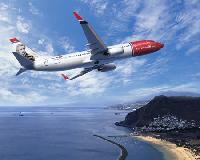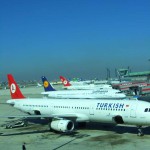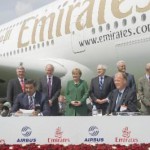The Boeing Company [NYSE: BA] and low-fare carrier Norwegian Air Shuttle ASA announced an order for 42 Boeing Next-Generation 737-800s. The order is valued at $3.1 billion at list prices. The airline has secured purchase rights for an additional 42 737-800s.
Today’s order is the largest ever from any Scandinavian carrier and is the largest European order this year for the 737. This direct purchase comes on top of Norwegian’s recent decision to add 11 Boeing 737-800s to its fleet through lease agreements. All of the 737-800s, including those on lease, will be fitted with advanced-technology Blended Winglets, which reduce aerodynamic drag and therefore reduce fuel consumption and related carbon emissions by 3 to 5 percent.
With headquarters in Oslo, Norwegian selected the Next-Generation 737 to form the foundation of its fleet as it expands its route network throughout Europe. With its recent acquisition of Stockholm-based FlyNordic, Norwegian now ranks as Europe’s fourth largest low-cost carrier as measured by 2006 passenger traffic. The carrier said the new 737s will help establish it as a preferred low-cost option far beyond its home base of Scandinavia.
„The new airplanes will strengthen Norwegian’s competitive position in the Norwegian, Nordic and European aviation markets,“ said Bjørn Kjos, CEO of Norwegian Air Shuttle ASA. „Also, the airplanes are significantly more environmentally friendly than the ones we use today. These airplanes will reduce Norwegian’s CO2 emissions and bring down fuel costs, while noise levels are considerably lower than for other airplanes.“
On a typical Norwegian Air Shuttle 820 nautical-mile mission, the 737-800 with Blended Winglets burns 22 percent less fuel and produces 22 percent less CO2 per passenger than the Classic 737-300 currently operated by Norwegian.
„The Next-Generation 737’s reliability, passenger appeal, low-cost operations and lower maintenance costs have helped keep the 737 the preferred airplane for low-fare airlines. Its versatility will allow Norwegian to operate it very economically on both its short-haul and long-haul routes,“ said Marlin Dailey, vice president of Sales, Europe, Russia & Central Asia, Boeing Commercial Airplanes. „The 737 works hard to make more money for its owners. Taking the fuel-efficient Blended Winglets as an option also demonstrates Norwegian’s commitment to improving fuel efficiency and reducing environmental impact, a commitment that Boeing shares.“
Boeing routinely seeks environmental improvements throughout its product development process. In the case of the Next-Generation 737, improved aerodynamics, a lighter airframe, and a lighter and more powerful engine produced by the French-American partnership CFMI, have led to major environmental gains compared to previous models. More than 75 percent of Boeing’s research and development investment will benefit environmental performance.
The 737 is the most successful commercial airplane family in history. Boeing has more than 1,700 unfilled orders for the Next-Generation 737 worth more than $120 billion at current list prices.
Norwegian Air Shuttle
Norwegian is one of Europe’s leading low-fare airlines and started its operations on Sept. 1, 2002, with four domestic routes and six Boeing 737-300s. In December 2003 Norwegian was listed on the Oslo Stock Exchange. Today Norwegian has 22 Boeing 737-300s, eight MD80s (FlyNordic) and will have 11 new Boeing 737-800s delivered from 2008 to 2010. The aircraft are mainly leased except for two Boeing 737-300s which are owned by Norwegian. The company offers a route network of 122 routes to 75 destinations. Headquartered in Fornebu, Norway, the company has 1,250 employees. For further information, please visit the airline’s Web site: www.norwegian.no






